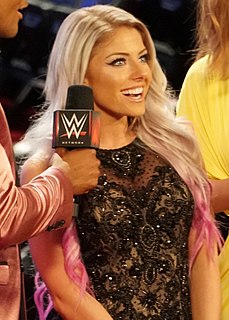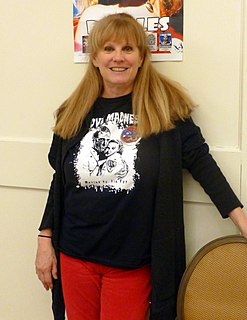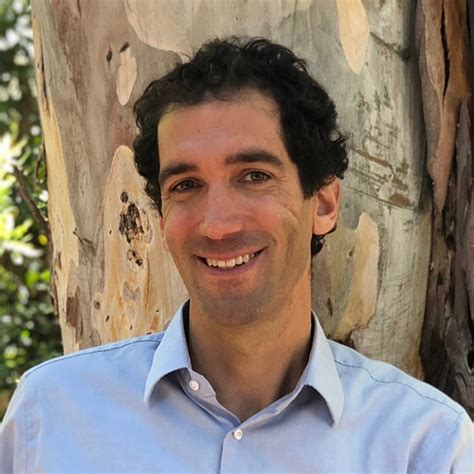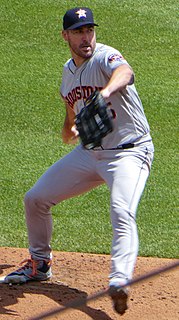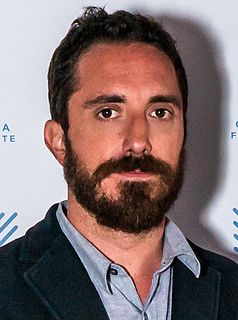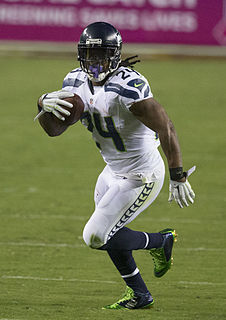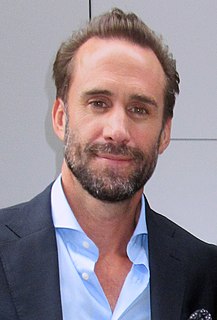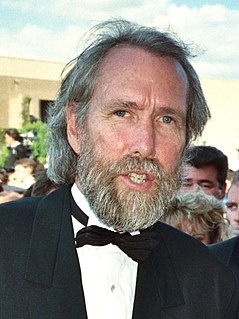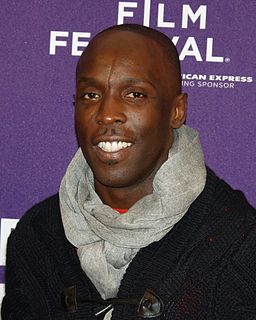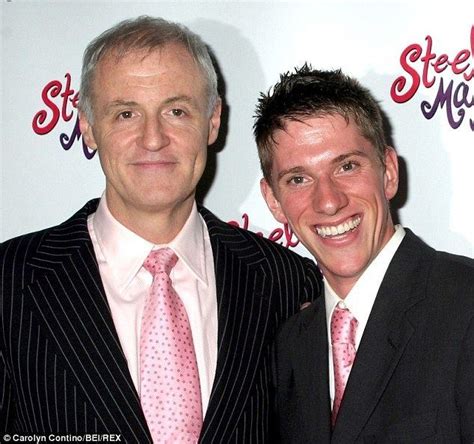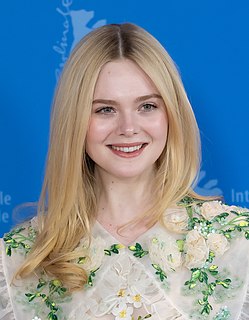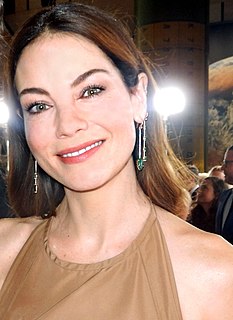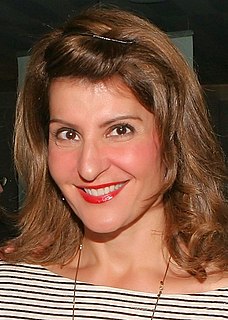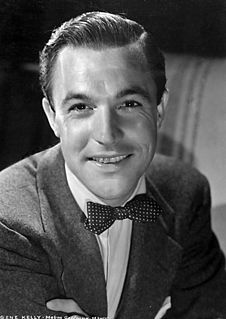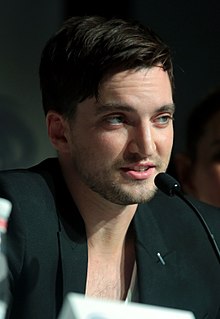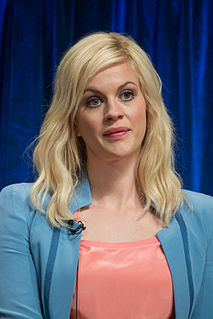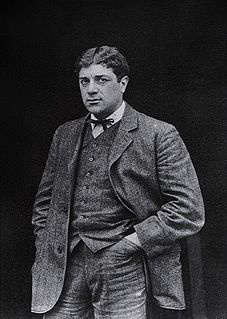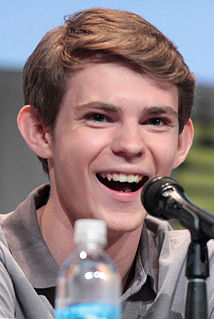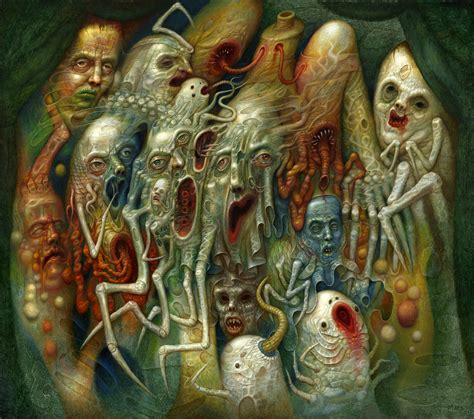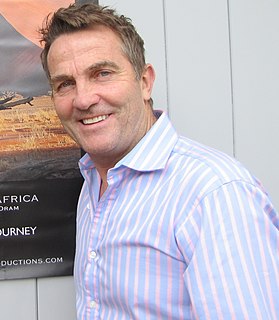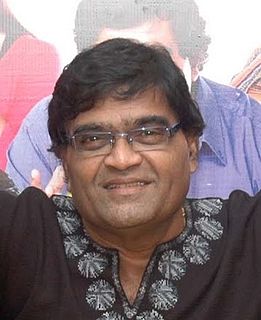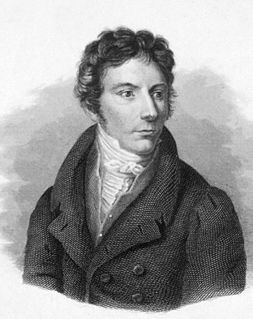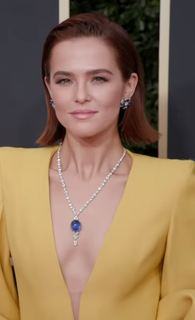Top 689 Portray Quotes & Sayings - Page 11
Explore popular Portray quotes.
Last updated on April 20, 2025.
People are very surprised to hear me say that a lot of my values are Christian values. I think that's part of my shock. I just don't like the way that Christianity combined with the influence of television has bred a nation of weakness. (Christian television do get the facts wrong sometimes and the image they portray turns most people off.)
I've known gay people - men and women - since I was a young person. To me it's just naturalistic and realistic to portray gay characters in a humanistic light. As a young man, I knew enough gay people as people not to fear them. On the other side of the coin, I like to irritate conservatives and homophobes.
All writers write about themselves, just as the old storytellers chose to tell stories that spoke to and about themselves. They call it the world, but it is themselves they portray. The world of which they write is like a mirror that reflects the inside of their hearts, often more truly than they know.
Whatever the scientists may come up with, writers and artists will continue to portray altered mental states, simply because few aspects of our nature fascinate people so much. The so-called mad person will always represent a possible future for every member of the audience - who knows when such a malady may strike?
Especially in entertainment geared toward young people, the women are much stronger than they used to be. There's not really the damsel in distress anymore. I think the stereotype still possibly lives in different genre pictures but, in entertainment for the younger generation, they're used to women being equal and being strong. I think if you don't portray that, it would be kind of weird.
It was always fun auditioning for commercials, because that was the beginning of my career, and me figuring out how I was going to portray myself as an actress vs. a model, because models were very different back then in the early '70s. They didn't usually hire models for acting. But I acted first in commercials and then I did modeling, so it was a little different.
But being able to talk to so many patients from so many walks of life gives a tremendous window into people's lives. This is not to say I want to write about individual patients, but I think that after listening to the concerns of people who are so different from me, I can more realistically portray characters who are so different from me.
When an artist wants to paint a painting, they have all those things in their head that they want to portray on a canvas. It's the same thing when I'm pitching. I have all these thoughts going through my head about how I want to pitch: which pitch I want to throw here, and why do I want to throw it?
The essence of the cinema that I'm interested in is a combination of love, rage, and curiosity. Sometimes it's hard to see those intentions, or maybe it's hard to portray them on film in a way that doesn't sound too preachy or irrelevant. So instead of saying it out loud, you say it multiple times in the movie by hiding it. You get a sensation after you see the whole film throughout yourself.
One of the differences between now and then is that the idea of body image is a much bigger issue now. Back then, just being kind of heavy and barrel-chested passed for heroic. Now, you wouldn't dare to play a hero without a lot of dieting and various specialised abdomen machines. But that was one of the things which was interesting about it and I did want to portray because there's good and bad.
I don't know what story y'all trying to get out of me. I don't know what image y'all trying to portray of me. But it don't matter what y'all think, what y'all say about me because when I go home at night, the same people that I look in the face - my family that I love, that's all that really matter to me.
If I am allowed to give a metaphorical allusion to the future state of the blessed, I should imagine it by the orange-grove in that sheltered glen on which the sun is now beginning to shine, and of which the trees are at the same time, loaded with sweet golden fruit and balmy silver flowers. Such objects may well portray a state in which hope and fruition become one eternal feeling.
You know, mind allows us to portray in different sensory modalities, visual, auditory, olfactory, you name it, what we are like and what the world is like. But this very, very important quality of subjectivity, this quality that allows us to take a distant view and say, "I am here, I exist, I have a life and there are things around me that refer to me." That me-ness, M-E-hyphen, that is what really constitutes consciousness.
Adam Smith's uncritically enthusiastic modern disciples portray his invisible hand theory as saying that market forces reliably harness selfish individuals to serve the common good. That's often true, but as Darwin recognized clearly, many traits that serve the interests of individual animals make life more difficult for larger groups.
I know it's easier to portray a world filled with cynicism and anger, where problems are solved with violence...It's an easy out. What's a whole lot tougher is to offer alternatives, to present other ways conflicts can be resolved, and to show you can have a positive impact on your world. To do that, you have to put yourself out on a limb, take chances, and run the risk of being called a do-gooder.
Let's be clear: all professions look bad in the movies. And there's a good reason for this. Movies don't portray career paths, they conscript interesting lifestyles to serve a plot. So lawyers are all unscrupulous and doctors are all uncaring. Psychiatrists are all crazy, and politicians are all corrupt. All cops are psychopaths, and all businessmen are crooks. Even moviemakers come off badly: directors are megalomaniacs, actors are spoiled brats. Since all occupations are portrayed negatively, why expect scientists to be treated differently?
As it happens, Chicago is the nation's leader in municipal privatization efforts. That's right: The city that conservatives portray as the citadel of the power-grabbing, government-growing left has been selling itself off in pieces for years. It signed a 99-year lease for the Chicago Skyway, a toll road in the city's South Side, back in 2005.
I love Starship Troopers. That's really smart. I think he really could portray fascism in a comedic way. It's funny because both José [Padilha] and [Paul] Verhoeven were accused of being fascists for their movies because they had fascist leads. So, it's not going to have his tone, but there's going to be political satire in it.
Singing is a way of releasing an emotion that you sometimes can't portray when you're acting. And music moves your soul, so music is the source of the most intense emotions you can feel. When you hear a song and you're acting it's incredible. But when you're singing a song and you're acting it's even more incredible.
My dream role is to portray someone like James Baldwin. I've always been a fan of his writing, and I feel like he's one of our unsung heroes. He's been pretty much forgotten, and I think he needs to be recognized. He had to go all the way to Europe to find recognition and acceptance, and I'd just like to bring him to the forefront.
I firmly believe in and support everyone's right to freedom of artistic expression. STEEL MAGNOLIAS is my artistic expression, and it is my right to say that its female characters be portrayed by women. The concept of a play set in a beauty parlor where men portray women is a terrific idea. If that is someone's artistic expression, I encourage them to write their own play as soon as possible.
It's not that difficult to find the rage or the anger. We all have that in us, and luckily, actors and actresses get to portray it, and it's not frowned upon. Everybody has that in them. Everybody has wanted to kill somebody at one time or another. Everybody has been really, really angry about something, so if you just call on that in yourself, you find it's not that difficult.
Eventually, I think, by using such elements as flocks of birds or biblical quotes, repeatedly I add meaning to my final product. I'm still exploring how to express my feelings through these elements. I've always felt that in order to portray humans, you should not be shooting humans; you should be shooting something else. And what I've used is animals, which are very important in my films.
When you walk in your home you don't have to maintain the same attitude that you had out in the street. You can be different with your people and your family than you are with a person that you run into in the hood. Even them they have to know to respond to you differently in the hood cuz if people see something out of the character that they portray you. They'll try you.
The first time we did it [voice-over], I was trying to use my face and my eyes more so and really portray that emotion, and that didn't matter. I realized you have to bring that emotion into the way you sound, and all those different layers have to be in your voice instead of the way you are wrinkling your eyebrows or whatever. I had to learn how to do that.
I knew that this was something that was going to be an intense experience, just from the way I typically approach my work. I did not take the fact that I was going to portray a soldier lightly. It was so very important to me that I came across as believable and honest and truthful. I wanted to be able to convey the psychology behind the choice of leaving home for an extended period of time, knowing that you may never come back while still being a devoted parent.
My singing - it's who I am, it's all of me and it's my soul. The self expression of using your vocal equipment is not only physical and spiritual, but it's something you can't explain. It's your heart and soul together. Yes, I enjoy acting, but I portray other people. But when I sing, it's just me on that stage, communicating how I feel, how I think and what I believe.
In the 1930s there was this tendency in Hollywood to portray everyone as rich. Even if they were doing a poor man's dance, they were all so nicely clothed, gowned, coiffured. That's why I decided to wear white socks, loafers, T-shirts, and blue jeans. I had a sociopolitical context in front of me: I was a child of the Depression who danced in a way that would represent the common man.
When the pop culture is littered with TV shows that portray men as rapists, brutes and predators and women as the never ending victims no matter how much power they acquire, no matter how much the decks are stacked in their favor politically, they're still portrayed as weak and victims and not fairly paid and so forth. And all men want to do is get along.
The reason I stopped modeling was because I wasn't pleased with trying to portray something that is impossible to reach. Even when I do photo shoots now for films, I'm just not interested in trying to look my best all the time anymore. That pursuit of an impossible perfection seems ridiculous to me now. I'd rather show my vulnerabilities or my doubts than try to be something that no one is.
There aren't a lot of alternative roles for Indian actors. I think we've fallen short of portraying Indians in the media. We don't need to make another Dances With Wolves, because it's not an Indian movie. When Indians portray themselves, then we have a different perspective. I've been asked about making period pieces but I've never read one that wasn't about guilt, and I'm not trying to make a guilt film.
I believe the entertainment industry cannot portray on film people gunned down in cold blood, in living color, and not have it affect the attitudes and thoughts of some of the people who see it... I believe that the desensitizing effect of such media abuses on the hearts and souls of those who are exposed to them results in a partial fulfillment of the Savior's statement that 'because iniquity shall abound, the love of many shall wax cold'.
I make a playlist for every character I portray. Music plays a huge part in helping me understand a character. Every time I get a new role, I will take a chunk of time to just sit and listen to a bunch of songs and select the ones that make sense in my mind for that character. I can't even explain how much it helps me.
In displaying the psychology of your characters, minute particulars are essential. God save us from vague generalizations! Be sure not to discuss your hero's state of mind. Make it clear from his actions. Nor is it necessary to portray many main characters. Let two people be the center of gravity in your story: he and she.
Actors are professionals who deal with people's emotions and their thoughts. So, working with this very intelligent, smart cast meant that sometimes I would only have to start speaking a word and these wonderful actors would immediately catch onto what I wanted them to portray, and how I wanted them to act.
My dad discouraged me and my older sister watching too much TV. I don't want to portray them as crazy hippies, but I definitely feel like I was influenced by their creativity. But did I want to have an acting career myself? I didn't think so. I think my goal really was to direct. I really wanted to make stories in that capacity.
An initial impulse of mine was to portray the way in which a city is impacted by war. But this is vague, no? After all, how do you actually have an entire city - or country, for that matter - be a character a reader can follow? One way is by making it smaller and personalizing it, by writing specifically about the citizens and the way they contend with the reality, even minutiae, especially minutiae, of their lives.
The reason I stopped modeling was because I was not pleased with trying to portray something that is impossible to reach. Even when I do photo shoots now for films, I am just not interested in trying to look my best all the time anymore. That pursuit of an impossible perfection seems ridiculous to me now. I would rather show my vulnerabilities or my doubts than try to be something that no one is.
I couldn't portray a women in all her natural loveliness.. I haven't the skill. No one has. I must, therefore, create a new sort of beauty, the beauty that appears to me in terms of volume of line, of mass, of weight, and through that beauty interpret my subjective impression. Nature is mere a pretext for decorative composition, plus sentiment. It suggests emotion, and I translate that emotion into art. I want to express the absolute, not merely the factitious woman.
To portray an iconic character has been brilliant in itself, and to be able to do that on a show like 'Once Upon a Time' enhances that because the show puts a spin on characters and makes them very different and puts core values that are very different that aren't in the original fairy tales a lot of people relate to.
Sometimes I will portray the more normal-looking people as the monsters and then the more distorted - "uniquely formed" is the word I like to use, rather than monstrous - as the sympathetic characters in the painting. It's interesting because some people will get it right away, but a common reaction is to be a little off-put by it. And that is the whole idea. If it grabs somebody in a negative way, that's my intention.
I was lucky I guess. My main job was done when I finally found Ben Whishaw and knew that there was someone who could portray a character who was so ambiguous and multi-faceted. Ben is equally dark and innocent; potentially violent and yet at the same time kind of a boy. He got all that across and still makes audiences root for the guy even though they might be kind of disturbed by that fact.
Something that has always attracted me to even taking on the occupation of actor is the idea that I could be lucky enough to portray different characterizations from different places in the world, whether it's speaking another language or taking on a dialect and building a history from where they were born. I was very attracted to that concept, in becoming an actor.
Anxiety is so pervasive in my work, it's like it's not even a thing because it's always there. Like air. I have to work through a layer of anxiety to get to anything else. It's embarrassing to me when people point out to me all the anxiety I portray in my work. I don't ever want to write about anxiety again but it'd be like leaving a huge gap in the picture.
Physio-philosophy has to show how, and in accordance indeed with what laws, the Material took its origin; and, therefore, how something derived its existence from nothing. It has to portray the first periods of the world's development from nothing; how the elements and heavenly bodies originated; in what method by self-evolution into higher and manifold forms, they separated into minerals, became finally organic, and in Man attained self-consciousness.
I have a twitter, but I try to not talk about things like, "Oh, I had a grapefruit this morning and it was delicious," because, who cares? But, I think it can serve as a platform for talking about things that matter to me, like the organizations that I work with. As pretentious as that sounds, it is true. You can really make a difference, if you can create a following and actually represent who you are, as opposed to how people want to portray you. But, I don't know what the balance is.







